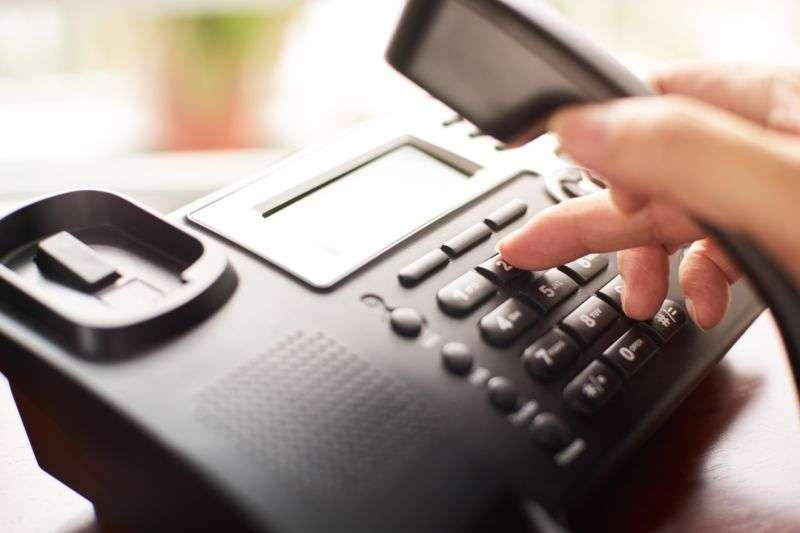
Cable industry fights plan to require robocall-detection technology

The cable industry is fighting an attempt to require deployment of robocall-detection technology.
Some phone providers have already begun deploying the technology in question, which is called SHAKEN/STIR. The technology authenticates callers with digital certificates to prevent spoofing of Caller ID numbers. But Charter—the lobby group that represents Comcast and other cable companies—wants to make sure the Federal Communications Commission doesn’t impose any deadlines on the rollout.
The FCC in June proposed to require implementation of SHAKEN/STIR “if major voice service providers fail to meet an end-of-2019 deadline for voluntary implementation.” The commission also sought public comment on the proposal. Consumer Reports and other consumer advocacy groups subsequently asked the FCC for a requirement that major phone providers implement SHAKEN/STIR at no extra charge to consumers by June 2020.
Cable lobby NCTA–The Internet & Television Association last week told the FCC in a filing that “these requests for mandatory requirements should be rejected.”
NCTA continued:
As a threshold matter, it is important to remember that voice service providers are not generating the illegal calls that are plaguing consumers. Nor is this a situation where providers are stubbornly refusing to implement easy, off-the-shelf solutions that would benefit their customers. To the contrary, as NCTA explained, all voice service providers have a strong incentive to implement SHAKEN/STIR in a timely manner because illegal robocalls diminish the value of the service that providers sell to consumers. Because that loss of value to our customers is bad for business, service providers have been working for the last few years to address these issues. Starting from a blank slate, voice providers collectively have been responsible for developing the SHAKEN/STIR standards, establishing a governance authority, and selecting a policy administrator to manage the administration of the authentication system.
While consumer advocates only asked for a strict deadline to apply to large phone companies, NCTA still used its filing to argue that a mandate would harm small phone companies. “[P]lacing mandates on providers, particularly smaller providers, will not be helpful at this time,” NCTA wrote. “Requiring a company to implement SHAKEN/STIR before it is economically and technologically feasible for that company will only lead to ineffective and inefficient actions.”
Even if the FCC wants to impose a mandate, it shouldn’t do so now, NCTA also argued. “The better approach is for the Commission to continue monitoring the rollout of SHAKEN/STIR and to reassess the need for a mandate at a later date,” the group said.
USTelecom, which represents AT&T, Verizon, and other telcos, also told the FCC that it shouldn’t impose mandates. A lobby group that represents small and mid-size cable companies similarly urged the FCC to reject calls for a mandate.
Time for “real deadlines”
The consumer advocacy groups argued that it’s “time to set real deadlines for call authentication.”
“While the FCC has pressed the major voice service providers to implement call authentication technology SHAKEN/STIR by the end of this year, cross-carrier implementation has been relatively limited by mid-2019,” the consumer groups wrote. “And some major landline carriers have declined to provide specific estimates for when they plan to begin authenticating calls.”
The consumer groups said that small and rural carriers should be given “flexibility with respect to deadlines,” and they didn’t suggest any specific deadline for those phone companies. But major phone providers should be expected to meet a strict deadline, the groups said.
AT&T, Comcast, and T-Mobile have already announced SHAKEN/STIR implementations.
Pai threatened regulatory intervention
FCC Chairman Ajit Pai has generally avoided imposing any consumer-protection requirements on cable companies, so there’s a good chance the NCTA will get its wish. In June, Pai’s FCC gave carriers more authority to block robocalls but didn’t impose any actual requirements.
Still, it’s not completely out of the question that Pai would impose rules, as he previously threatened “regulatory intervention” if major phone companies fail to adopt SHAKEN/STIR this year. Pai had criticized carriers including Sprint, Charter, and CenturyLink for not fully committing to deployment of SHAKEN/STIR. The holdouts mostly changed their tune and promised to deploy SHAKEN/STIR this year, although Sprint still didn’t commit to a full implementation this year.
In June, Pai said “a voluntary, industry-led process is most likely to achieve this goal” of full deployment by the end of 2019. But he also said the FCC “will be in a position to take regulatory action early next year, should that be required.”
SHAKEN/STIR’s authentication of Caller ID doesn’t actually block robocalls on its own. Consumers will see notifications on incoming calls when a Caller ID number has been authenticated, but calls that aren’t authenticated would still ring customers’ phones. If SHAKEN/STIR is implemented widely enough, it could help customers figure out when calls are coming from legitimate callers.
Carriers could theoretically use SHAKEN/STIR to determine whether to block calls, but that could lead to legitimate calls being blocked unless all phone carriers adopt the technology. AT&T said this month that it’s using Caller ID authentication as one data point in its anti-robocall algorithm. But AT&T also said that it isn’t blocking calls solely based on whether they aren’t authenticated.




